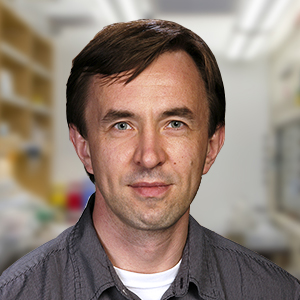Source: Interfolio F180

Anton Maximov, PhD
Research Focus
Our unique memories make us who we are. Representations of the external world are stored in the brain by billions of neurons with diverse morphologies, molecular compositions and physiological roles. Each of these neurons forms up to several thousand synaptic contacts that transmit signals with remarkable speed and precision.
The Maximov laboratory seeks to uncover the mechanisms that regulate neuronal connectivity at molecular, cellular and circuit levels. We primarily focus on the hippocampus, a laminated structure within the limbic system of the brain that is critical for memory, emotions and navigation. We study the architecture and function of hippocampal circuits by using a variety of genetic, biophysical and behavioral techniques. We are particularly interested in understanding how synaptic networks of specific excitatory and inhibitory neuron subtypes are reorganized during learning, and how these experience-dependent events contribute to memory coding. We heavily rely on optical imaging, serial electron microscopy and computational tools to define the role of experience in wiring of the hippocampal pathway at scales ranging from global to subcellular. In parallel, we elucidate the molecular bases of network plasticity and information storage by combining human genetics data, unbiased screens, and analysis of candidate genes in mouse models. As a part of this research program, we also design new tools to manipulate genetically-defined and behaviorally-relevant neural ensembles with small molecules.
Education
Ph.D. (Biology), Russian Academy of Sciences, 1998M.S. (Biophysics/Biochemistry), St.-Petersburg State University, Russia, 1996
Professional Experience
1994 – 1998 Research Intern, Graduate Student. Institute of Cytology, Russian Academy of Sciences, St. Petersburg, Russia.1998 – 2002 Postdoctoral training. Department of Physiology, UT Southwestern Medical Center, Dallas, TX.
2002 – 2007 Postdoctoral training. Center for Basic Neuroscience, UT Southwestern Medical Center, Dallas, TX.
2008 – 2014 Assistant Professor. Department of Cell Biology, Department of Molecular and Cellular Neuroscience, The Dorris Neuroscience Center, The Scripps Research Institute, La Jolla, CA.
2014 - present. Associate Professor (Tenured) Department of Neuroscience, The Dorris Neuroscience Center, The Scripps Research Institute, La Jolla, CA.
Selected Publications
Polli, Filip S.; Roncacè, Vincenzo; Maximov, Anton The multifaceted role of SOCE in central synapses. 2021, 97, 102420.
Zhu, Yongchuan; Uytiepo, Marco; Bushong, Eric; Haberl, Matthias; Beutter, Elizabeth; Scheiwe, Frederieke; Zhang, Weiheng; Chang, Lyanne; Luu, Danielle; Chui, Brandon; Ellisman, Mark; Maximov, Anton Nanoscale 3D EM reconstructions reveal intrinsic mechanisms of structural diversity of chemical synapses. 2021, 35, 108953.
Zhu, Y.; Huang, M.; Bushong, E.; Phan, S.; Uytiepo, M.; Beutter, E.; Boemer, D.; Tsui, K.; Ellisman, M.; Maximov, Anton V. Class IIa HDACs regulate learning and memory through dynamic experience-dependent repression of transcription. Nature Communications 2019, 10.
[View]
Shimojo, M.; Madara, J.; Pankow, S.; Liu, X.; Yates, John R.; Sudhof, T. C.; Maximov, Anton V. Synaptotagmin-11 mediates a vesicle trafficking pathway that is essential for development and synaptic plasticity. Genes & Development 2019, 33, 365-376.
[View]
Lobanova, Anastasia I.; She, R.; Pieraut, S.; Clapp, C.; Maximov, Anton V.; Denchi, E. L. Different requirements of functional telomeres in neural stem cells and terminally differentiated neurons. Genes & Development 2017, 31, 639-647.
[View]
Sando, Richard C.; Bushong, E.; Zhu, Y.; Huang, Min; Considine, C.; Phan, S.; Ju, S.; Uytiepo, M.; Ellisman, M.; Maximov, Anton V. Assembly of excitatory synapses in the absence of glutamatergic neurotransmission. Neuron 2017, 94, 312-321.
[View]

